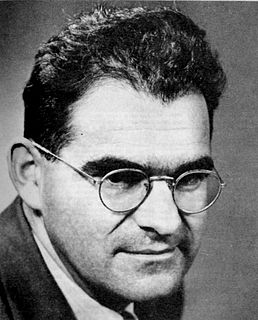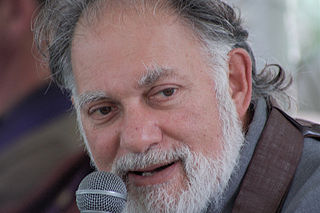A Quote by Dalai Lama
Hatred, jealousy and excessive attachment cause suffering and agitation. I feel compassion can help us overcome these disturbances and let us return to a calm state of mind. Compassion is not just being kind to your friend. That involves attachment because it is based on expectation. Compassion is when you do something good without any expectations - based on realizing that "the other person is also just like me".
Quote Topics
Agitation
Also
Any
Attachment
Based
Because
Being
Calm
Cause
Compassion
Excessive
Expectation
Expectations
Feel
Friend
Good
Hatred
Help
Involves
Jealousy
Just
Just Be
Just Being
Kind
Let Us
Like
Like Me
Me
Mind
Other
Overcome
Person
Realizing
Return
Something
Something Good
State
State Of Mind
Suffering
Us
Without
Your
Related Quotes
When the only bond between close friends is attachment, then even a minor issue may cause one's projections to change. As soon as our projections change, the attachment disappears, because that attachment was based solely on projection and expectation. It is possible to have compassion without attachment, and similarly, to have anger without hatred.
The compassion we feel normally is biased and mixed with attachment. Genuine compassion flows towards all living beings, particularly your enemies. If I try to develop compassion towards my enemy, it may not benefit him directly, he may not even be aware of it. But it will immediately benefit me by calming my mind. On the other hand, if I dwell on how awful everything is, I immediately lose my peace of mind.
In contrast, compassion manifests in us as the offering of kindness rather than withdrawal. Because compassion is a state of mind that is itself open, abundant and inclusive, it allows us to meet pain more directly. With direct seeing, we know that we are not alone in our suffering and that no one need feel alone when in pain. Seeing our oneness is the beginning of compassion, and it allows us to reach beyond aversion and separation.
I no longer become angry. I not only do not say angry words, I do not even think angry thoughts! If someone does an unkind thing to me I feel only compassion instead of resentment. Even upon those who cause suffering I look with deep compassion, knowing the harvest of sorrow that lies in store for them. If there were those who hated me, I would love them in return, knowing that hatred can only be overcome by love, and knowing that there is good in all human beings which can be reached by a loving approach.
For an act to be moral the intention must be based on compassion, not duty. We do something because we want to do it, because we feel we have to do it, not because we ought to do it. And even if our efforts fail - or we never even get to implement them - we are still moral because our motivation was based on compassion.
Sometimes people feel disappointed when they hear about practicing compassion: "You mean I have to be nice?" It's kind of a letdown. We often overlook compassion, seeing it as merely a pit stop on the way to more advanced practices. We want something more; we don't even know what. But that's just a trick of our mind. One of the greatest teachings is to practice compassion.
The essence of love and compassion is understanding, the ability to recognize the physical, material, and psychological suffering of others, to put ourselves "inside the skin" of the other. We "go inside" their body, feelings, and mental formations, and witness for ourselves their suffering. Shallow observation as an outsider is not enough to see their suffering. We must become one with the subject of our observation. When we are in contact with another's suffering, a feeling of compassion is born in us. Compassion means, literally, "to suffer with."
If we take the time to look deeply, we see that understanding and compassion arise from suffering. Understanding is the understanding of suffering, and compassion is the kind of energy that can transform suffering. If suffering is not there, we have no means to cultivate our understanding and our compassion. This is something quite simple to see




































